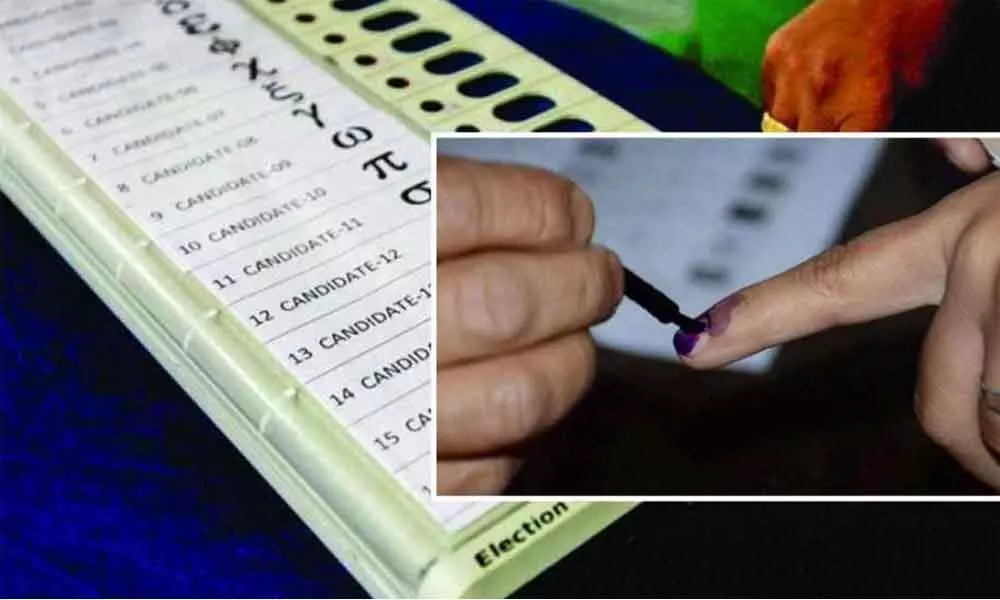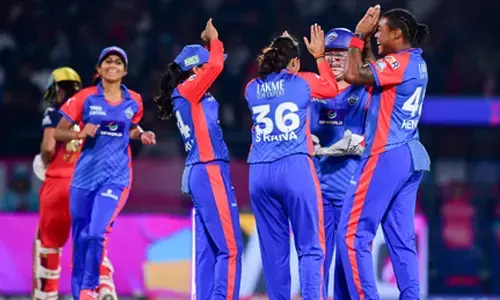MLC polls underscore losing sanctity of electoral politics

MLC polls underscore losing sanctity of electoral politics
The just concluded elections to the two seats of Telangana Legislative Council under Graduates constituency have once again raised the debate on how the political parties polluted the poll atmosphere.
The just concluded elections to the two seats of Telangana Legislative Council under Graduates constituency have once again raised the debate on how the political parties polluted the poll atmosphere.
When the Constitution of India provides a bicameral system at both the Centre and the State level and divides the State's legislature into two parts - Legislative Assembly and Legislative Council - the purpose is to have a permanent House where the tenure of MLCs is six years. One-third of the members of State Legislative Council retire after every two years. This, it was felt, would ensure individuals who might not be cut out for the elections are able to contribute to the legislative process (like artists, scientists, etc) and can keep an eye on hasty decisions taken by the Legislative Assembly and use their experience and expertise in various fields in advising the government on important policy matters after an intense debate and function like think tank of the government in an apolitical manner. But unfortunately, the elders House has become more of a political rehabilitation centre and sort of extension of the lower House.
Debates and discussions are now on the lines of respective political parties and not on merits of the content. The ruling party tries to use it as endorsement centre of its decisions and not for analysis of the pros and cons of policy matters. According to the Constitution, one-third of the members of the Council are to be elected by electorates consisting of members of local bodies like municipalities, district boards etc. Another one-third are to be elected by MLAs. One-twelfth of MLCs are to be elected by an electorate consisting solely of graduates and another one-twelfth by an electorate consisting of teachers. The remaining members are to be nominated by the Governor from among those with special knowledge in various fields. Unfortunately, even the process of elections of MLCs by graduates has turned into a battle where money power, religion and caste creep into the highly divisive election campaign. But neither the national parties nor the regional parties are willing to address this issue. "Jo Jeeta Vohi Sikander," seems to be the attitude.
There have been many instances where workers of political parties (no exception) were caught distributing money to the graduate voters. The only difference is that the distribution was a bit more decent. Money was packed in envelopes and were handed over to the voters. Ruling party poll in-charges ensured that the voters go the polling booth by making arrangements for transportation. SMS and phone calls were made informing the voters saying that the vehicle was on its way to pick them up. What was the result? Despite heavy voter turnout and the Opposition claiming that the votes polled by all Opposition candidates including the independents were more than what the TRS candidates had polled, the results went in favour of the ruling party. This only shows how the political parties are self-centred and instead of joining hands and putting up a united fight against the ruling party, everyone wanted to fight for its share of political space and the adage "divided we fall" has once again proved to be right. The core issues related to this election where graduates, intellectuals, professionals, teachers, employees and employment, which otherwise were to hog the limelight, were dominated by allegations and counter-allegations. It is also a matter of shame that the graduates have allowed themselves to get lured for a couple of thousand rupees given by political parties. Is this the wisdom the graduate voters and candidates should have displayed? If that is the case, how can we expect them to play the role of wise man in the Council? Is there no way to cleanse the political pollution which has turned more dangerous than environmental pollution? 'Jago India.'














